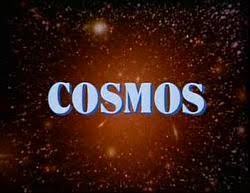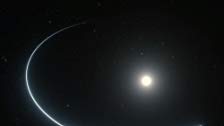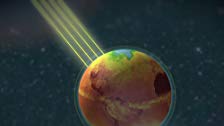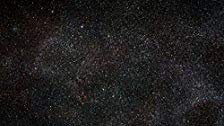Cosmos 2014: Difference between revisions
No edit summary |
|||
| Line 49: | Line 49: | ||
== Episode 7 The Backbone of Night [[Image:3-stars.png|100px]] == | == Episode 7 The Backbone of Night [[Image:3-stars.png|100px]] == | ||
[[Image:Cosmos2014_e7.jpg|left]] A | [[Image:Cosmos2014_e7.jpg|left]] A | ||
</br> | </br> | ||
Revision as of 20:26, 28 March 2019
As I mentioned on the main astronomy page, I like this very much, and would recommend it as a good introduction to the history of astronomy and of the history of the universe. I find it holds up pretty well to the 40 years since it’s release, and the edition I got from the library was the 20th anniversary extended edition with updates at the end of most episodes.
Comos (1980) - Carl Sagan
This is the general description of the course/series. It's pretty bald.
An exploration of our discovery of the laws of nature and coordinates in space and time.
Episode 1 The Shores of the Cosmic Ocean 
Carl
Carl Sagan examines our planet's place in the universe by leading us on a journey from Earth to Deep Space.
Episode 2 One Voice in the Cosmic Fugue 
A pretty good episode that describes the building blocks of life, evolution (including a cool Japanese crab, the Heikegani) that has been preferentially saved because it looks like it has a Samurai face in its shell, to experiments at Cornell with the basic gases of the early Earth and how, with electricity, it forms proteins and nucleic acids and the building blocks of life. He closes with a virtual tour of Jupiter’s gases.
Carl Sagan examines the origin, development, and complexity of life on Earth and speculates on the possibility of life developing elsewhere in the universe.
Episode 3 Harmony of the Worlds 
This
After briefly looking at the pseudoscience of astrology, Carl Sagan examines the history of astronomy from ancient times through Ptolemy to Johannes Kepler.
Episode 4 Heaven and Hell 
This
Carl Sagan examines the nature of comets before turning to a close look at the planet Venus.
Episode 5 Blues for a Red Planet 
A
Carl Sagan looks at the search for life on Mars from the speculations of Percival Lowell and H.G. Wells to the arrival of the Viking probes.
Episode 6 Travellers' Tales
A
Carl Sagan looks at the planets Jupiter and Saturn by examining the work of Galileo, Huygens, and the Voyager probes.
Episode 7 The Backbone of Night 
A
Carl Sagan looks at the work of ancient Greek scientists and astronomers including Thales, Anaximander, Democritus, and Pythagoras.
Episode 8 Journeys in Space and Time 
An
Carl Sagan explains scientific concepts like relativity and examines the possibility of time travel.
Episode 9 The Lives of the Stars 
Another
Carl Sagan examines the life cycle of stars from their creation to their deaths.
Episode 10 The Edge of Forever 
OK
Carl Sagan focuses on the origin of the universe by discussing the Big Bang, Galaxies, Dimensions, and the expansion of the universe.
Episode 11 The Persistence of Memory 
Pretty
Carl Sagan examines life on earth discussing genes, DNA, the brain, and human social development.
Episode 12 Encyclopaedia Galactica 
A
Carl Sagan examines the possibility extraterrestrial life and discusses his skepticism about UFOs.
Episode 13 Who Speaks for Earth? 
The
Carl Sagan considers the significance of science and discuss the importance of human survival in the nuclear age.













